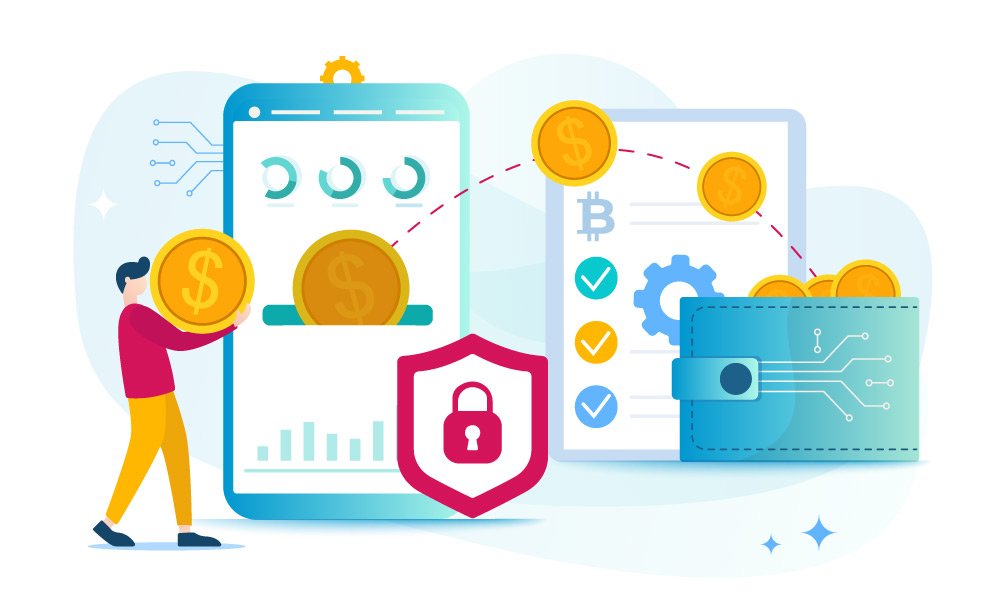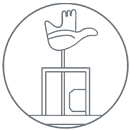BlockChain Based On Bitcoin Network

Table of Contents
Blockchain, the cryptocurrency Bitcoin’s highlighting technology, is a peer-to-peer, distributed, append-only (P2P) resource transfer network. Blockchain is a kind of distributed record supported by a group of geographically distributed nodes through various agreement protocols. It regularizes the power through decentralization and restricts information tampering by distributed archiving of information, using various encryptions and hashing methods. Basically, blockchain is an organized list of blocks of data where transactions by clients are assembled in the form of blocks, and every block has a cryptographic pointer to the last block that forms a chain-like structure in which anomalies can be easily identified. Each node supporting the blockchain network keeps a duplicate copy of the blockchain and synchronizes it with other remaining networks via different agreement protocols.
Isn’t that interesting?
Blockchain-Based Security and Privacy in Smart Cities
It is apparent that the era of the Internet of Things (IoT) is knocking on our door. Cities are developing continuously, and currently incorporated information and communication technologies (ICT) are welcomed to transform to the new reality. The expansion of connected nodes, combined with the desperation of new structure of products in order to oblige this new era, are raising significant security issues that the ICT community has been approached to look at.
Is the current technology able to accomplish a protected environment within the vastly developing smart cities? There are many factors that should be taken into consideration, apart from only securing the smart cities. Particularly, advanced technologies need to be able to decrease consumed resources, as well as increase the lifestyle of the citizens, without endangering their privacy.
The use of blockchain-based systems endeavors to resolve these emerging issues. Specifically, the blockchain model offers an opportunity to end the existing practice of storing data on third-party records, which requires huge data security resources to secure their information.
Data Management and Distribution
Blockchain has an important role to play in the fast-moving world of smart cities. The IoT is approaching rapidly, and will be an essential part of the modern age. Blockchain and the IoT tend to combine forces to fulfill the high demands of smart cities, as well as to present advanced technologies and services. The new idea of Blockchain in IoT (BIoT) is becoming exceptionally famous in cities that have already started the practical execution of a smart city environment.
The need for rapid access to real-time information has been expressed several times. The innovation of BIoT will send technology in the right direction. The associated nodes will be able to access information directly from the sensors that are implemented in products and gadgets in a transparent and continuous way. Moreover, the blend of Blockchain and the IoT will give an additional boost to the endeavors for trust, authentication, and standardization of several components in a smart city, and most importantly, for the capacity for peer-to-peer connection without any involvement of a third-party element.
Privacy Preservation in Smart Cities
The blockchain technology has been widely executed to protect privacy in the IoT domain. A recent survey indicates that it has a feasibility and significant value in the IoT ecosystem. A key feature of blockchain is that it is distributed, empowering applications to work in a distributed form. For example, healthcare system architecture developed based on blockchain, which makes it easy for patients to share personal healthcare information while safeguarding their data privacy. To moderate the privacy issues in smart vehicles, proposed a blockchain-based architecture that ensures the security of vehicular environment and protects the privacy of clients. Another recent work proposed a strong security protection smart contracts system based on the blockchain model. In addition, there are many blockchain-based protection technologies built for other smart applications. However, it still has incredible potential in this field. We need to take steps forward to utilize this technology to adapt with privacy issues in Smart Cities.
Blockchains and the IoT
Blockchains are the foundation of a well known phenomenon of crypto-currencies, the most popular of which is Bitcoin. But they can have far bigger applications in the IoT, and present persistence to manage risk.
Blockchains are profoundly distributed and publically viewable systems of sequentially connected cryptographically signed pieces of data which enables entities to approve not only systems of stored value—like cryptocurrencies—but also information and resources that would reduce risk in IoT systems and services. Blockchain technology is accessible from various sources, including open-source programming tools and vendor-support distributions.
Rather than depending on banks and other trusted organizations like courts to mediate and validate agreements and transactions, blockchains provide an alternative to protect financial risks in the IoT related to stored value systems. Blockchains also offer an opportunity to oversee risks associated with poor or deficient information about IoT devices, goods and services, in a highly trusted and automated way. Blockchains will also uphold fast appraisal and settlement of disputes associated with terms and conditions through the associate notion, and especially updates to terms and conditions related with services levels: the chains will be visible to all devices in an authenticated way via the block chain.

Access maintenance and classifier-based blockchain technology in e-healthcare applications
By carefully choosing e-healthcare data, the classifier model is used from the characterized information, which is ready to use those records, and such access should be maintained and checked. The blockchain-based access-control admittance for health information works on the integration of this structure. Off the blockchain system, with the involvement of the public, the blockchain was proposed as an access-controller of healthcare information. The inherent characteristics of blockchain designing and configuration show features such as transparency, power, auditability, and protection. A blockchain can be considered to be a relevant database, created as a list of requested blocks, where the submitted blocks are invariable. This is a procedure where patients store their data in an Electronic Health Record (EHR) system for privacy and further access. Patients share their health information with health care professionals and associations with the help of these EHR systems.
Blockchain gives a distributed digital database of transactions, also known as a decentralized record, which is maintained up to date by a system of computers that approve an exchange before it is added to the record. The system stores the information in blockchain when the patient shares information with the framework. To ensure the privacy of redistributed EHRs, the current plan uses a cell phone-based key recognizing plan to set up a protected channel between the patient and doctors. Patients can give their acquired parts to emergency clinics and backup plans, which can use these resources to treat them. This is one technique of publicly supporting the endowment programs for the poorest peoples in society. The proper record is used here to empower an individual to show that he or she exists at a particular time and place, and this is affirmed by a gathering of people using the distributed plan of blockchain. The most remarkable features of appropriated records are persistence, safeguarding from oversight, decentralized support, and removal of the requirement for a centralized and confided third party.
Unlike distributed data sets, the nodes supporting the blockchain network don’t congenitally trust each other and autonomously verify each transaction element on the blockchain network that gives a distributed log of events. Since no special authorities manage the blockchain networks, they are highly conflicting to censorship and a single point of failure.







